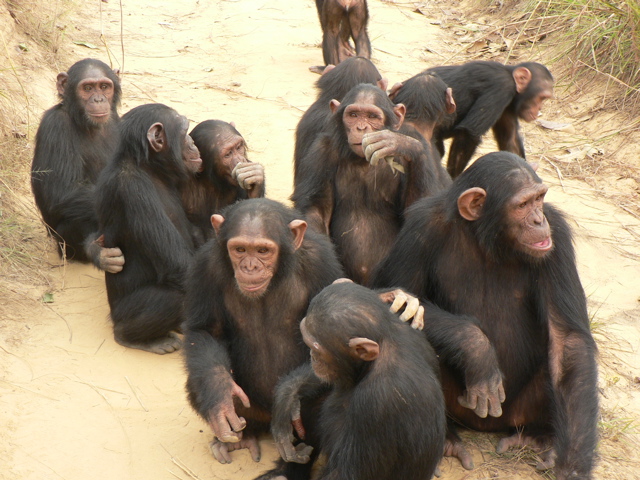The New York Times dedicated to undermining human exceptionalism, publishing such subversive advocacy regularly.
Today’s example, by English professor (of course!) Randy Laist in the Sunday Review section, says we should identify as mammals rather than humans. From, “Why I Identify as Mammal:”
In a world of conscious beings, identity matters. Self-perception plays a vital role in behavior, so the question of how human beings think about themselves in relation to the world is more than simply one of semantics; ways of seeing lead, directly and indirectly to ways of acting.
Given all that, I choose to identify as a mammal.
Well of course, Laist is a mammal biologically. So are all of us.
But we are far more than that. We are human beings, and only we can “identify” in the sense that Laist is describing. That makes us exceptional any way you look at it.
More than that, we are the only truly moral species in the known universe. Only we have duties–to ourselves, each other, our posterity, animals, and the environment.
The more we recognize that essential aspect of our natures–integral to human exceptionalism–the better our lives will be in community with each other, and the more enlightened animal husbandry and environmental practices we will adopt.
But Laist, reflecting the weak intellectual understanding of human exceptionalism among the intelligentsia and anti-humans, has it all upside-down:
Human exceptionalism–expressed in our treatment use and abuse of other animals, and in the damage we do to the natural environment–has paved the way for enormous harm. It seems clear, then that identifying exclusively as human has its pitfalls.
Why is it wrong to abuse animals? (I refuse to say “other animals” because he is using the term in the moral and not the biological sense.) Precisely because we are human!
It isn’t “wrong” when hyenas eat still-living prey. If humans did that it would be monstrous.
It isn’t “wrong” when male dolphins force themselves on females. But it is a profound violation when a woman is gang raped by a group of men. Indeed, we often call such men, “beasts.”
Much of the behavior by the world’s mammals would be deemed monstrous if done by us. And there is no moral judgment because morality is a strictly human concept.
Why in the world would I want to “identify” as that?
Eventually, Laist’s essay collapses into post-modern gibberish.
There are deep-seated joys associated with our mammalian natures. The satisfaction of working up a good sweat. The infantile pleasure taken in soft, furry things. A tasty swig of milk.
The warmth and fuzzy feeling itself–one of the most basic descriptors of human contentment–is essentially mammalian, referring to the body heat of the ancestral burrow that we still remember in our bones and seek to recapture in various ways throughout our lives.
Please. We are not hobbits. We have worked diligently throughout our existence as a species to get away from living in dirt holes.
Eventually, Laist even strips well-defined terms of their meaning:
This mammalian sensibility is a powerful spur to the ethical imagination. Not only do I put down the hamburger, seized with the impression that eating a cow is tantamount to cannibalism, but my feeling of solidarity with mammals strengthen my feelings of pity and pride regarding that particular branch of the mammal family known as homo.
I hate to break it to Laist, but our co-mammals don’t return his sympathy or empathy. If he ran into a hungry grizzly, the bear wouldn’t hesitate to “cannibalize” his flesh.
Click here to sign up for daily pro-life news alerts from LifeNews.com
Bottom line: Mammals aren’t “ethical.” They don’t give a fig about environmental responsibility. The lion feels not a whit of guilt eating the zebra.
Those attributes lie exclusively in the human realm. With the exception of animals we have domesticated–changing them to suit our needs and desires–the world of mammals is oblivious to us, or look at us hungrily as prey or fearfully as their predators.
Laist’s attempt to deny human exceptionalism to induce us to higher standards of care for the natural world is actually an example of the very thing he decries.
Or to put it another way, if we think of ourselves as just a mammal, that is precisely how we will act.
LifeNews.com Note: Wesley J. Smith, J.D., is a special consultant to the Center for Bioethics and Culture and a bioethics attorney who blogs at Human Exeptionalism.








